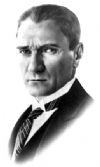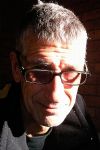|
ESL Forum:
Techniques and methods
in Language Teaching
Games, activities
and teaching ideas
Grammar and
Linguistics
Teaching material
Concerning
worksheets
Concerning
powerpoints
Concerning online
exercises
Make suggestions,
report errors
Ask for help
Message board
|
ESL forum >
Ask for help > a complicated one...
a complicated one...
|

source

|
a complicated one...
|
|
Hi everybody, it has been too long since i shared smt with you, sorry about that....Btw I �m really curious about getting your precious comments on a question asked in a high school placement test in Turkey. As most of you are native, please share your ideas with me by not only taking into account grammatical correctness but also other considerations. Here we go ; Mary Sanders was a successful artist.Before she died,_____
A) she should do practice
B) she had better take photos
C) she has won several awards
D) she could draw many pictures Thank you :) |
30 Apr 2015
|
|
|
|

yanogator

|
|
It �s unfortunate that this is on a test, since the only correct answer is not very good. a, b and c are grammatically wrong. Answer d is correct, but is not worded in a way people would say it. Anyway, the only correct answer is d. Many people might pick answer c, but the present perfect isn �t correct for an action before another action (died) in the past. The past perfect would have worked, but that isn �t offered. Bruce |
30 Apr 2015
|
|
|

Zora

|
|
I agree with Bruce, but I would go so far as to say none of them are really correct. I think that perhaps a typo might have occurred in "c" since it would have actually been the correct answer if it was: she had won several awards. |
30 Apr 2015
|
|
|

yanogator

|
|
That �s a good point, Linda, since answer C gives a reason for the word "successful" in the first sentence. I maintain that D is grammatically correct, remembering that "could" is the simple past of "can", so it says that before she died she was able to draw pictures. That makes the question even more unfortunate if answer C was a misprint. Bruce |
30 Apr 2015
|
|
|

serzt

|
|
Since this question was prepared by a non-native Turkish teacher, no unfortunately it �s not a typo. They asked the question in the nationwide High School Entrance Examination in Turkey. |
1 May 2015
|
|
|

mariec

|
|
But Bruce if you say "she could draw many picture" you are saying that she had the ability but not that she actually drew pictures. I think all of them are incorrect.
|
1 May 2015
|
|
|

Peter Hardy

|
|
No, Mariec,�in fact, none of them is correct. Answers A and B are about giving advice�in the present or the future. Yes, B too, despite the use the past tense of have. But we need to remember the poor lady died, so whatever happened is at a point in the past before another event in the past (her dying). Hence, a past perfect would be the only right structure. Having said this, �could � as a past tense of can and not as a possibility, may be interpreted as "She had been able to draw many pictures."� Sadly, exams don �t ask for interpretations. A corrected answer C) "She had won several awards"�would be the only answer that makes sense. However, it �s not there, so as it stands, none of the answers makes any sense. Can you guys, Source or Serzt,�tell us the �official � answer? It would be interesting to see what the examiner thought. Talking about thoughts: Worksheets with mistakes are annoying, but I always remind myself that those who make no mistakes, make nothing.� Expensive textbooks with mistakes are more annoying. But tests and exams that determine students � futures should be flawless. � Cheers, Peter� � � �
|
1 May 2015
|
|
|

yanogator

|
|
OK, maybe it �s only in the US, but we use the simple past before the simple past. For example, we say things like, "Before I broke my hand I was able to (or could) play the piano." Apparently this isn �t true in the rest of the world, so I �ll retire my argument on this one. @mariec: Yes, "could" means she had the ability, but that doesn �t mean that she didn �t actually draw any pictures. Bruce |
1 May 2015
|
|
|

cunliffe

|
|
�Before she died, she could draw many pictures... � This reminds me of a little exchange which happened to me when I was a student. I had to read my essay out to the group and I was a bit nervous. Anyway, I set off: Pirandello, in his lifetime, wrote many plays about... � The lecturer interrupted me and said, �As opposed to after he died? �
|
1 May 2015
|
|
|

redcamarocruiser

|
|
I agree with Bruce. Although no one would say it like that probably, in American English it sounds correct to me grammatically, and could can mean that she completed drawings as well as had the ability to draw them. Before she died, she could publish several papers and her dream book. |
1 May 2015
|
|
|

cukurova

|
|
The official answer is �d �. This question was obviously asked to check students � awareness of the present and the past tenses.Yes,option �d � may not be the best answer to complete the sentence but is the right one here to choose.There is no way to complete this sentence with a present tense. |
1 May 2015
|
|
1
2
3
Next >
|